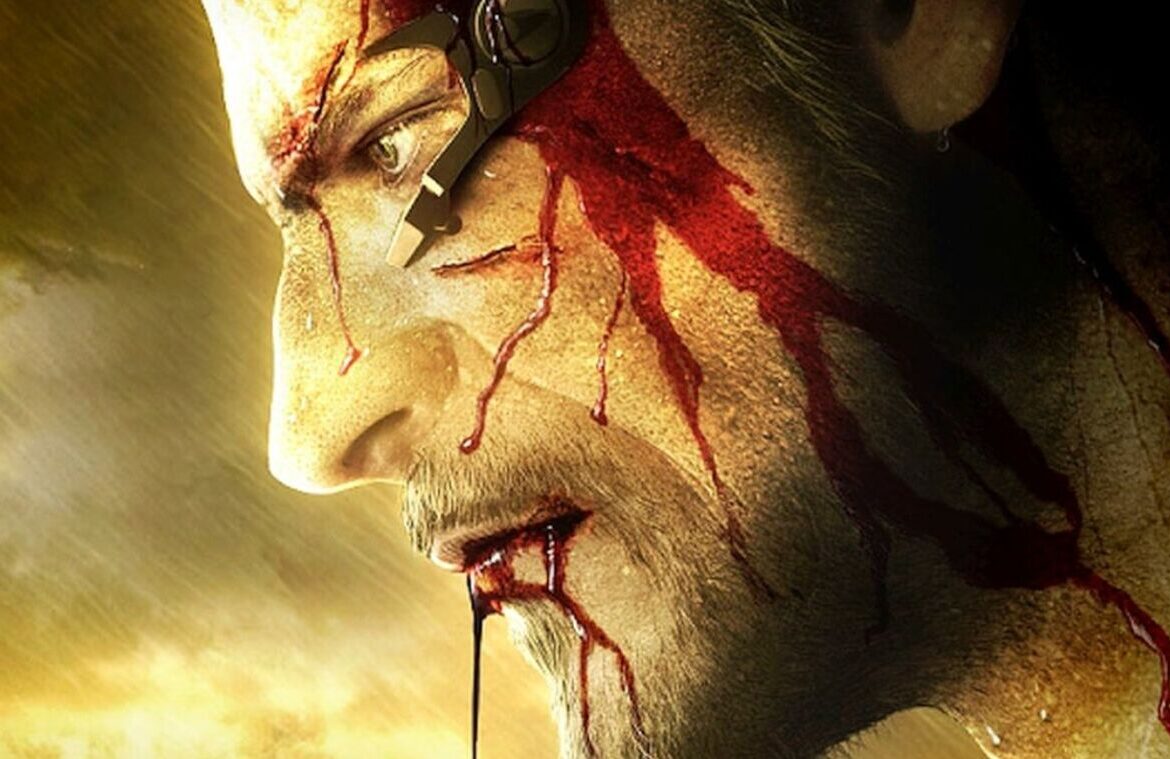Deus Ex might just be one of the most ambitious franchises in history. As a founding father when it comes to depicting cyberpunk dystopias in video games, Deus Ex has, in one form or another, been entertaining fans since its original release over 20 years ago. Whether you’re a fan of sneaking, sabotaging or shooting, in both “shooting the breeze” and “shooting bad guys” varieties, Deus Ex allows you to follow your playstyle of choice.
Unfortunately, Deus Ex appears to be in the middle of its second hiatus, with no indication whatsoever that the series will ever return, which is a shame because there’s potential for Deus Ex to fill a few gaps that other cyberpunk games failed to fill. With that in mind, today we’re asking the question: will we ever see a new Deus Ex game?
The History of Deus Ex
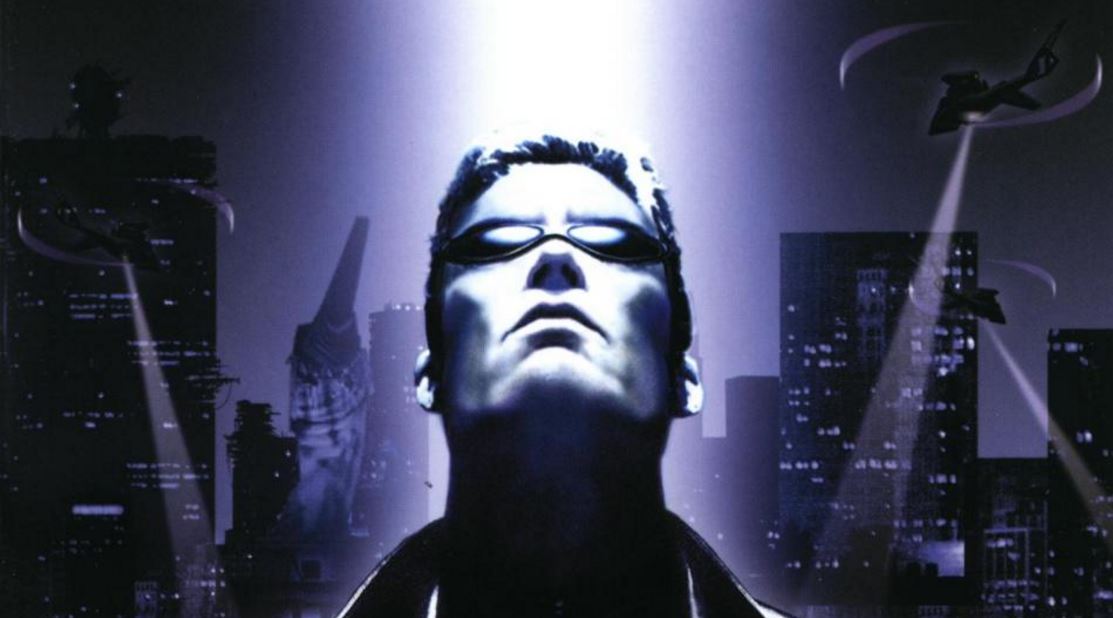
Deus Ex is the brainchild of legendary developer Warren Spector, who was part of the teams responsible for Ultima Underworld, System Shock and more.
Spector had wanted to develop what would become Deus Ex for years, with the idea formulating in 1993. He pitched an early version of Deus Ex to his employers at Origin and subsequently Looking Glass Games, but neither went for it.
It would take until 1997 for Deus Ex to truly enter development. After nearly joining Electronic Arts, Warren Spector ultimately took an offer from John Romero to join Ion Storm. As Warren described it in an interview with Game Developer, joining Ion Storm to create Deus Ex was an opportunity to create the game of his dreams: “Who can say no to that?
Development on Deus Ex started with the ambitious goal of blending genres like RPGs, FPS games and more with a dystopian cyberpunk backdrop in a way that hadn’t really been attempted before. Even now, few manage to match up to the design put forward by the original Deus Ex, cementing the original game’s status as an all-time classic, but we’re getting ahead of ourselves a bit there.
Despite being about a cyberpunk dystopia set in the 2050s, Ion Storm took a lot of inspiration from the news cycle of the late 1990s to inform the world of Deus Ex. Spector noted the following in his interview with Game Developer: “If we were gonna plug into the real cultural zeitgeist, we had to play close attention to things in the real world.You didn’t have to be a genius, even in 1997, to see that the news was increasingly filled with reports of terrorism.
Spector went on to say:
“And really interesting to us was the rise of nanotechnology; the dangers of that seemed fun to explore. But most importantly, everywhere you looked in 1997, it seemed like there was a conspiracy theory. The world of Deus Ex was being created all around us; we didn’t have to make anything up. It was great!”
The game launched in 2000 on PC and Mac, before being ported to PS2 in 2002 as Deus Ex: The Conspiracy. Deus Ex sees players as JC Denton, a UNATCO agent who travels around the world to deal with a host of government conspiracies, rampant plagues and more than a few hostiles. Fortunately for Denton, he’s equipped with an array of upgradeable abilities that the player can alter as they please. Each level and problem has multiple possible solutions, rewarding players for creating a build that suits them.
Deus Ex received nigh-on universal critical acclaim, sitting at a 90 on Metacritic. Reviewers praised the gameplay and role-playing aspects of Deus Ex, though there was some criticism of the game’s graphics and voice acting. However, these minor flaws wouldn’t be enough to stop Deus Ex from earning 30 different “Best Of” awards in 2001, and the game has since gone on to be considered one of the best games ever made.
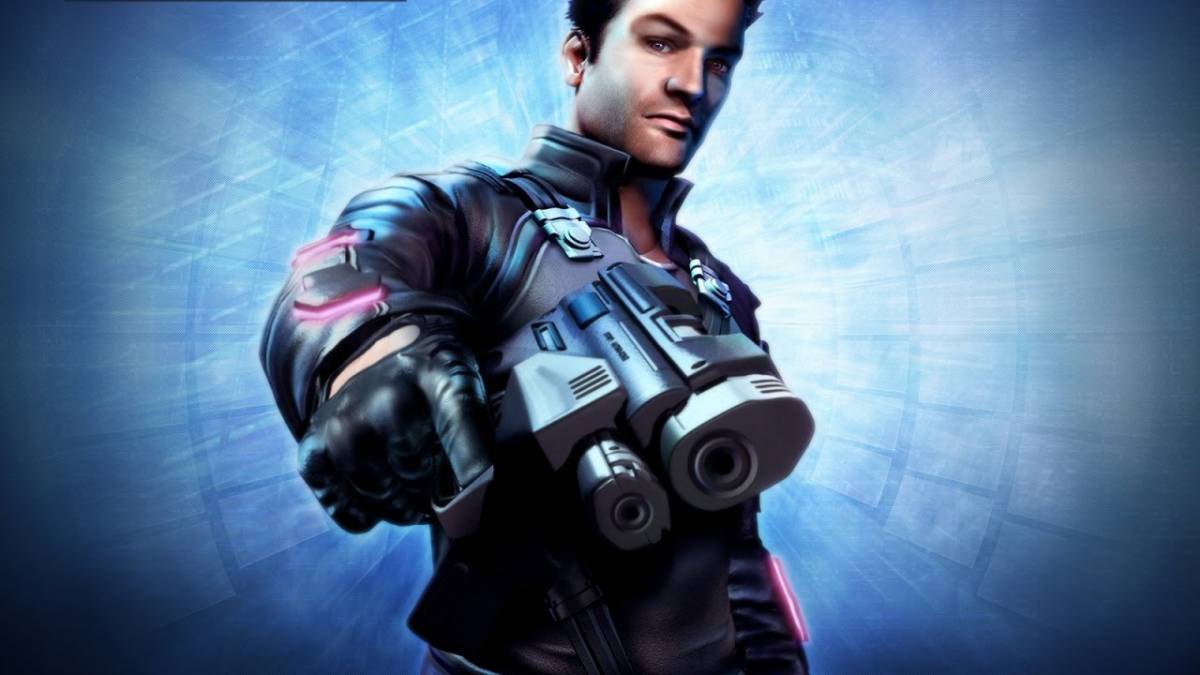
Naturally, with the incredible success of the original Deus Ex, a sequel was pretty much inevitable, and Ion Storm quickly got to work on the follow-up, titled Deus Ex: Invisible War. Most of the development team for the original game were back on hand for the sequel, along with some of the staff who helped port the original game to PS2. Those members became invaluable as Invisible War was developed for both the PC and original Xbox simultaneously.
During development, the team noted that they wanted to retain that core feeling of the original Deus Ex, only streamlined and simplified somewhat so that mainstream players could enjoy the game even more. This is especially true for console players, as Ion Storm were particularly conscious about those players being bogged down by endless, hard to navigate menus. In an interview with IGN, artist Jared Carr spoke about how the console version informed Invisible War’s whole development:
“Since Invisible War is a hybrid action RPG, we have a lot more interface than a standard shooter. Since we were designing for both console and PC, we felt it was important to keep the feel of a shooter and avoid excessive sub-screen levels that take the player out of the game world unnecessarily, and we wanted to keep a sense of immersion by justifying the screens fictionally (hence the ocular design).”
Deus Ex: Invisible War couldn’t quite match up to the original game when it comes to critical reception, with the PC version sitting 10 points lower at an 80 on Metacritic. The user reviews are even more harsh, with an average of 6.4. While the gameplay and story were broadly praised, a lot of criticism was levied at the fact that the game felt scaled back in order to work on console, giving Invisible War the status as the “worst mainline entry” in the Deus Ex series.
Despite managing to accrue between 500k and 1 million sales by 2005, the game’s developers have since gone on record to state their dismay with the final product, as the game’s director Harvey Smith conducted a conversation with Warren Spector at the University of Texas. During the conversation, Harvey wasn’t shy in voicing what he felt was one of the big missteps in the game’s development: “I feel like we fucked up the technology management of it. We had bad team chemistry. We wrote the wrong renderer. We wrote the wrong kind of AI. And then we shipped too early. The story was even bad. Like, it wasn’t a bad story story. It was more like we moved into the future, which – we didn’t realize at the time – undermined a lot of what made Deus Ex great.”
The Hiatus & Reboot
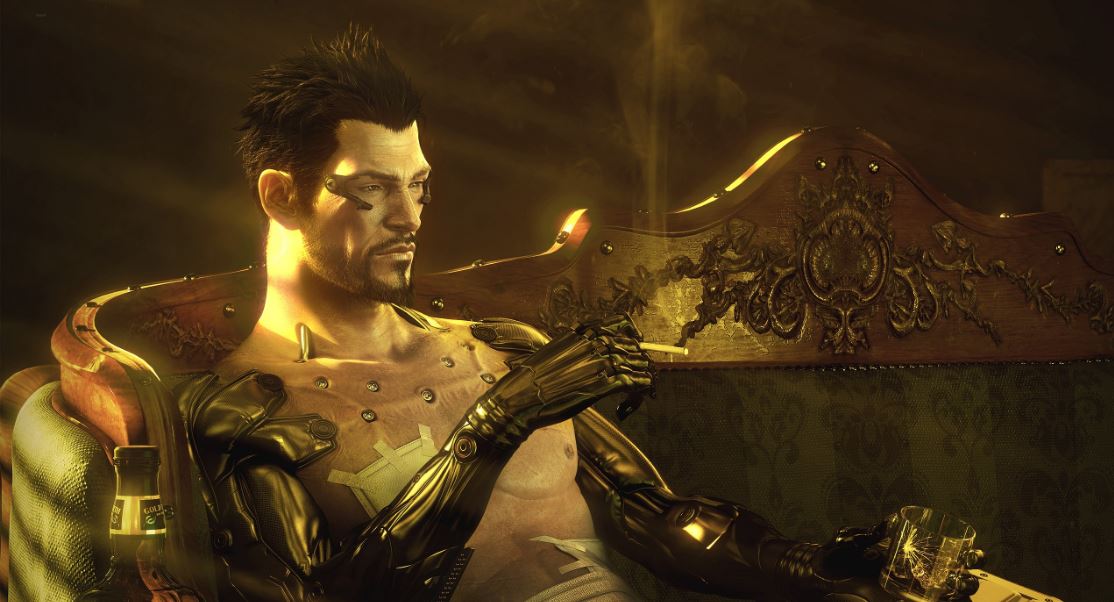
After the release of Invisible War, the Deus Ex series went on a somewhat unintentional hiatus. It wasn’t anyone’s intention for there to be a huge gap between releases, as between 2003’s Invisible War and the eventual Deus Ex: Human Revolution in 2011, a few Deus Ex projects were in the works, despite the fact that Warren Spector had left Ion Storm. Ion Storm tried developing two projects, titled Insurrection and Deus Ex 3, while Crystal Dynamics’ attempt at a multiplayer game, Deus Ex: Clan Wars, was eventually released as Project Snowblind.
Unfortunately for those versions of a third Deus Ex game, Ion Storm was shuttered by owners Eidos Interactive in 2005, owing to financial difficulties, and the Deus Ex series was placed on the backburner for a couple of years. Eidos Interactive then founded their Montreal studio in 2007, and the small team working there at the time went on to develop what became Deus Ex: Human Revolution. In 2009, Eidos Interactive was purchased by Square Enix, with the Japanese conglomerate publishing future Deus Ex games under their banner.
Naturally, with a project as huge as a new Deus Ex game, the developers racked their brains to try and figure out how to tackle it. The game’s director, Jean-François Dugas, spoke to RPGamer about how the development team spent the early days of Deus Ex: Human Revolution:
“When we started the project, there were just three of us- the producer, the art director, and myself. The first thing I said to the guys before writing anything down was that we need to go back to the original games and play the heck out of them. It’s like anything, when you’re young, you play or watch something, then when you’re older, you think, ‘Oh, that was great,’ but when you look at it again several years later, you have a different perspective.”
Crucially, development of Deus Ex: Human Revolution was spearheaded by staff who were completely new to working on the Deus Ex franchise, which naturally created some challenges for the game’s development. Despite that, the team felt like the game should return to the core principles of the original Deus Ex game, even though Human Revolution was a prequel/soft reboot for the series.
Human Revolution introduced a new protagonist in the form of Adam Jensen, who worked for the company Sarif Industries. After a targeted attack leaves Adam in a bad way and in need of intense augmentations, Adam finds himself at the centre of a global conspiracy that could decide the fate of technological advancement, along with the human race as a whole. I mean, it wouldn’t be a Deus Ex game without some kind of conspiracy, after all.
Deus Ex: Human Revolution launched in 2011 on PC, PS3 and Xbox 360, and proved to be an incredibly successful reboot for the series. The game earned a 90 on Metacritic for its PC release, with critics praising the game’s open-ended level design, amazing story and iconic visuals. By the end of the year, Square Enix reported that Human Revolution managed to sell 2.18 million copies across the US and Europe, making it the most successful game in the series up to that point.
Where’s Deus Ex Now?

After the success of Deus Ex: Human Revolution, Square Enix and Eidos Montreal wanted to capitalise on the franchise in a big way. In 2013, both announced Deus Ex: Universe, a transmedia initiative designed to create a more interconnected world for Deus Ex that’d include games, movies, books and more. Studio head David Anfossi had the following to say in a press release about Deus Ex: Universe:
“I’m really excited to let you know that we are working on an ambitious idea which we’re calling Deus Ex: Universe. It’s a commitment on our part to deliver meaningful content that expands the franchise on a regular basis and to deliver a deep conspiracy that will span several connected Deus Ex games, creating a more immersive and richer experience than ever before. Deus Ex: Universe will include PC and console games, but also additional Deus Ex games and experiences available in other media such as tablets, smartphones, books, graphic novels, etc.”
The Universe project included releases like the Director’s Cut of Deus Ex: Human Revolution, along with spin-off game Deus Ex: The Fall, both of which launched in 2013. The Fall was a mobile game intended to bridge a gap between tie-in book Icarus Effect and Human Revolution. It was also meant to be the first release in an episodic series, but tepid responses to the game on mobile, and even worse reactions to its subsequent PC port, meant that The Fall fell by the wayside. Even now, the story is incomplete.
Square Enix weren’t done with the mobile game development of Deus Ex though, as in 2016, the company released Deus Ex Go, a new instalment of the Go series which adapted the likes of Tomb Raider and Hitman into short form, mobile friendly puzzle games. No, there’s no relation to Pokémon Go here. Deus Ex Go was pretty well received by critics, though puzzle spin-offs aren’t enough to sustain a franchise. Deus Ex needed a big release, and fortunately, fans knew one was coming.
During the Deus Ex: Universe announcement, it was confirmed that a new premium game for PC and consoles was on the way. Deus Ex: Mankind Divided was finally unveiled in 2015, though the game courted controversy practically immediately. The game’s premise sees augmented people being treated like second class citizens thanks to the events of Human Revolution, but some people took umbrage with Mankind Divided’s way of showcasing that conflict, using terms like “Aug Lives Matter”, which the team stated was an unfortunate coincidence.
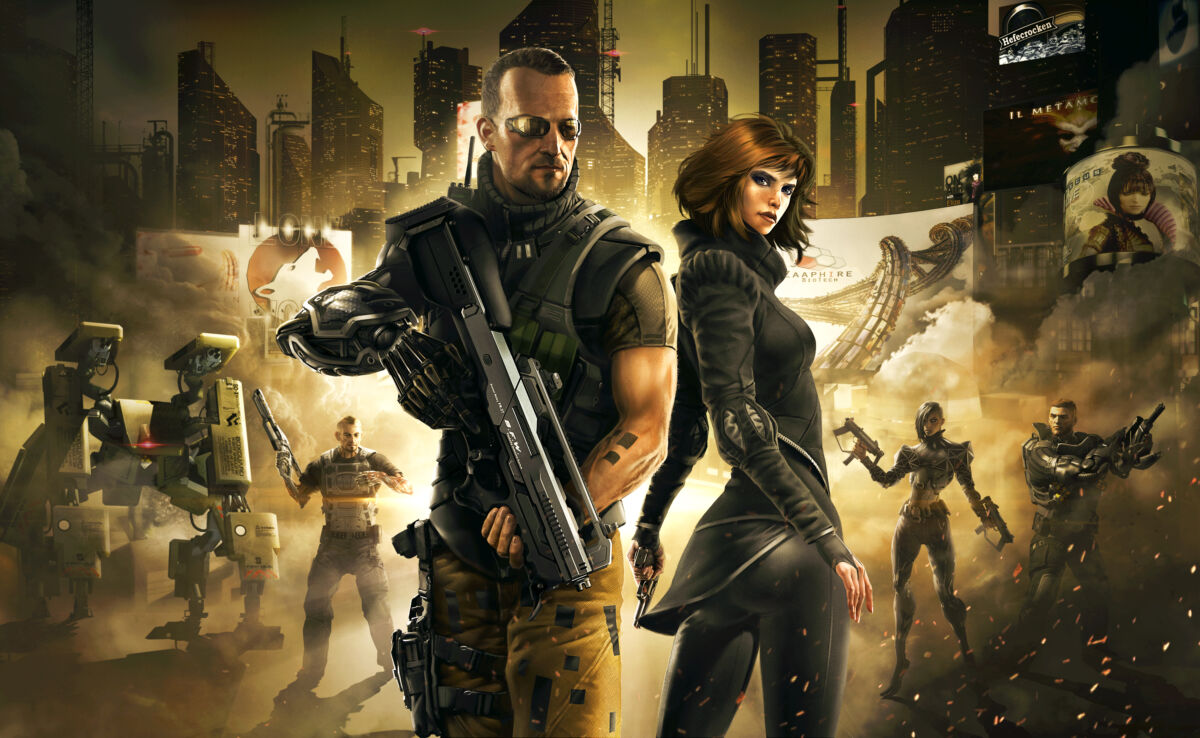
The controversy continued with the game’s extensive, five-tiered pre-order campaign, which many considered to be a “bit much”. The system practically encouraged players to get their friends to pre-order the game so they could unlock more stuff for their pre-order, which was quite frankly baffling. Fortunately, the decision was made to roll back this weird pre-order system, with all players getting all the content if they pre-order. Pre-order bonuses are still a bit icky, but it was a step in the right direction.
Mankind Divided launched in August 2016 and received decent reviews, with all versions of the game receiving around an 83 on Metacritic. While that’s not a high watermark for the Deus Ex series as a whole, it’s still a pretty impressive achievement for an ambitious RPG like Mankind Divided. Critics had a lot of praise for the gameplay, but the undercooked story, wonky voice acting and sudden conclusion didn’t sit right with some.
Worse news was to come after launch though, as the game was inundated with microtransactions that many found to be unnecessary and invasive. According to a report from Stephanie “Jim” Sterling, Square Enix meddled with Eidos’ development of Deus Ex: Mankind Divided all the way up to the 11th hour, springing on them that they’d have to create microtransactions only two weeks before the game’s final code was set to be approved. The unnamed Eidos employee who was Sterling’s source even accused a Square Enix exec of not caring about games, only money.
That sentiment was seemingly proven to be correct in 2017 with the release of Deus Ex: Breach, a free-to-play spin-off released on PC that asked players to pay real world money for ammo. In short, Breach was everything players fear about free-to-play games, and the game was naturally lambasted in Steam reviews from pillar to post for its egregious monetisation. Since then, the Deus Ex series has been dead in the water, but there may be life in the series just yet.
The Future of Deus Ex
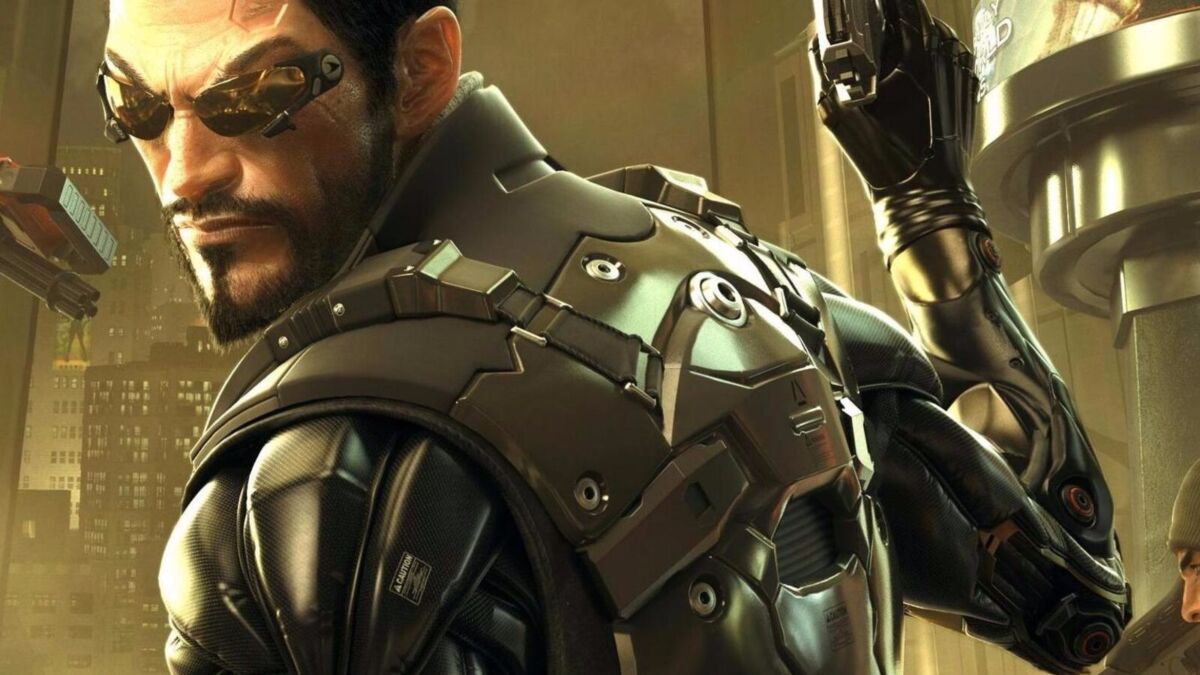
If it was up to Square Enix, the answer to if we’d get a new Deus Ex game would have likely been “no”. For whatever reason, Square Enix developed a reputation over recent years of being disappointed with their Western output. Despite the fact that, by May 2022, Deus Ex: Human Revolution and Mankind Divided had sold 12 million copies combined, Mankind Divided was considered a disappointment for Square Enix.
This mantra of calling their own games disappointments has extended to the likes of Outriders, Marvel’s Avengers, and Marvel’s Guardians of the Galaxy, among others. While Outriders and Avengers had their flaws, some more than others, Guardians of the Galaxy was genuinely considered one of the best comic book games ever made, and certainly one of the best games of 2021. To hear it be called a disappointment by the game’s own publisher’s feels a bit disheartening, especially when you consider that GOTG was developed by the same team who made Mankind Divided.
However, hope for the Deus Ex series does exist, as Square Enix sold off a large chunk of their western game development arm to Embracer Group for just $300 million, which still seems like a massive bargain. This includes studios like Crystal Dynamics and Eidos Montreal, along with properties like Legacy of Kain, Tomb Raider and Deus Ex. Beyond that, Embracer Group have even stated that they’ll be looking at bringing back existing properties, which has been their M.O. with the likes of THQ Nordic.
Though Embracer Group’s purchase of Square Enix’s licences and studios isn’t a direct confirmation that we’ll see a new Deus Ex game, the brand is so well known and successful at this point that the new owners would be foolish to have sat in a vault. Embracer likely has big plans for the Deus Ex series, among others, so we’ll just have to wait and see what they are in the coming years.
READ NEXT: Will We Ever See A New Max Payne Game?
Some of the coverage you find on Cultured Vultures contains affiliate links, which provide us with small commissions based on purchases made from visiting our site. We cover gaming news, movie reviews, wrestling and much more.


